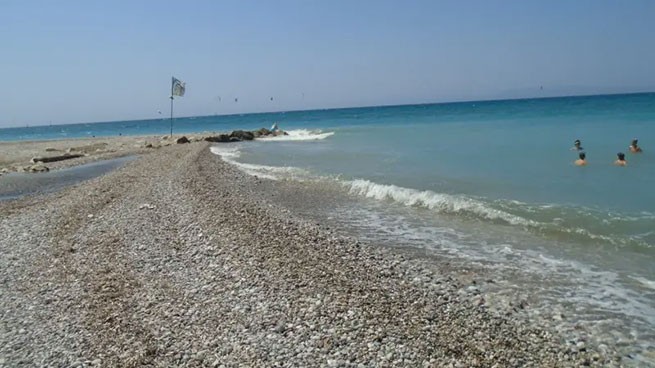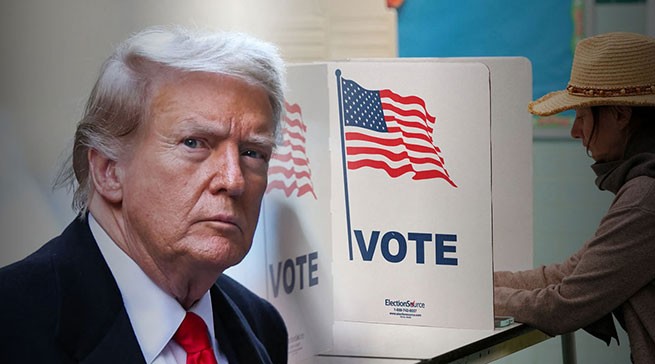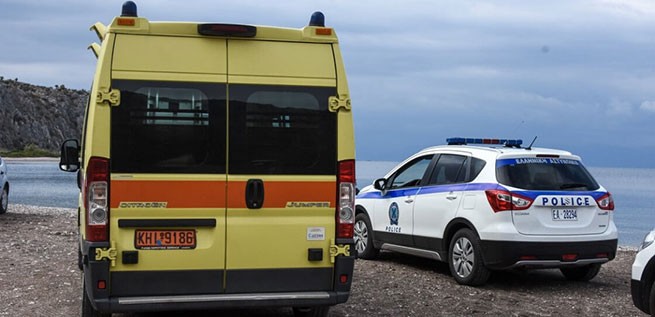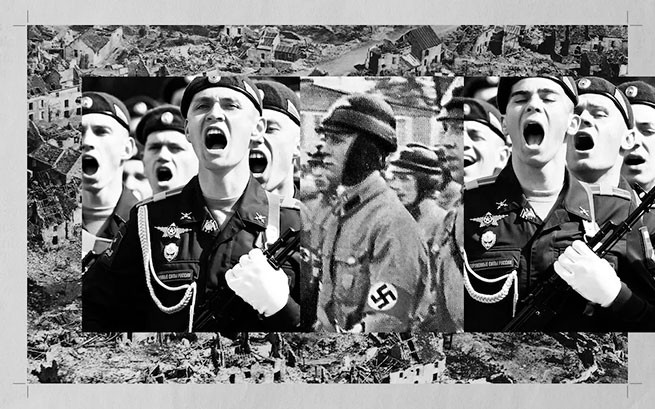The death of Western democracy is now highly likely, and a return to authoritarian strongmen is no longer a distant fantasy.
The first, written by former Ukrainian parliament member Alena Glivko, examines the devastating consequences for the NATO alliance. Today, historian Dr. Thomas Clausen assesses the consequences of such a victory for European politics.
“Ruscism” is a term often used to describe the sinister ideology underlying Russia's genocidal campaign. As Putin's talking points infiltrate the German AfD, the Austrian FPÖ and the fringes of the US Republican Party, it becomes clear that the Kremlin's special blend of “Russia” and “fascism” is becoming an export hit in the West (Ukrainian ideologues use its trope as ” rashism”, “racists”. Editor's note.). So if Putin wins in Ukraine, expect this toxic ideology to spread.
Looking back at the history of fascism in the 1920s and 1930s provides valuable lessons for understanding the threat posed to liberal democracies by the spread of fascist-type parties. In contrast to Woodrow Wilson's hopes that World War I had made “the world safe for democracy,” we have forgotten that most European democracies had perished by 1940. We are not immune to this.
The West is currently displaying an overconfidence reminiscent of the early months of World War II. In a speech at Westminster on April 3, 1940, British Prime Minister Neville Chamberlain confidently declared that Hitler had “missed the bus.” Less than three months later, the Nazis held their victory parade in Paris.
French historian Marc Bloch, who witnessed the collapse of the French army firsthand and was executed for his role in the Resistance in 1944, offers a compelling analysis of the reasons for the defeat: “Our leaders, or those who acted on their behalf, were incapable of thinking in terms of a new war.”
More than a decade has passed since Putin's soldiers first invaded Ukraine, annexing Crimea, and Western politicians are still trying to understand that the Russian leader has imposed a new kind of war on the West. “The very ‘rules of war’ have changed,” noted General Valery Gerasimov, Chief of the General Staff of the Russian Armed Forces, in 2016. “The role of non-military means of achieving political and strategic goals has increased, and in many cases they have surpassed the force of weapons in their effectiveness.”
NATO's economic and technological superiority, not to mention its nuclear umbrella, has made Western leaders comfortable with the prospect of a Russian victory – not only in Ukraine, but in Europe as a whole. The key to Putin's victory lies not in all-out war against NATO, but in using non-military weapons and undermining democracies. In short, Putin will win when liberal democracies lose the will to fight – and that day may be disastrously close. If it comes, it will only be the beginning of the spread of a new dangerous ideology, the likes of which have not been seen for decades.
Putin has already managed to confuse public discourse in the West. As Russian state television prepares its domestic audience for war and genocide, pro-Putin voices in the West condemn as “warmongers” those who want to support Ukraine with means of self-defense.
“Ruscism” also joined the culture wars. False promises of “national revival” and “traditional values” attract disillusioned conservatives in the West, while the left happily feeds on anti-Americanism and anti-capitalism. As recent Ivy League protests have shown, there is even a willingness to embrace terrorist groups such as Hamas, a close ally of Iran, which in turn supplies Russia with Shahed drones used to kill Ukrainian civilians.
Another success of Putin is attracting key figures in the West to his side. In Germany, where I live, this manifests itself in some notorious cases. It doesn't matter much whether they are “useful idiots”, paid lobbyists (for example, former Chancellor Gerhard Schröder) or (alleged) recipients of bribes. The important thing is that democratic discourse was compromised by agents ready to carry out the orders of “Ruscism”.
The fascism of populist movements is probably one of the most significant developments in recent years. For more than a decade, scholars have debated whether nativist, illiberal, and anti-elitist positions can be called fascist, and too often the term has been abused to disparage opinions outside the political mainstream. But Russian influence has changed all that – and the fact that Putin has infiltrated opposition voices across Europe and the United States may prove to be his smartest investment yet.
An example is the German AfD party. The party, founded in 2013, was led by liberal and conservative economists who argued that the euro was incompatible with notions of national sovereignty and was also economically harmful to both Greeks and Germans. The party narrowly passed the electoral threshold that year, but in 2015 it benefited from Angela Merkel's response to the refugee crisis. In 2017, the AfD entered the federal parliament for the first time and has since become an integral part of German politics.
At first, the AfD's positions did not seem too similar to those of conservative parties outside Germany: hostile to Brussels' undue influence, critical of unlimited immigration and fiscally conservative, the AfD said it was simply occupying the center-right positions vacated by Merkel's Christian Democrats.
However, it quickly became clear that the AfD is not a conservative party. In 2018, its chairman Alexander Gauland said that “Hitler and the Nazis are just a blip in Germany’s more than 1,000 years of glorious history.” Over the years, as most of the moderate voices left, the influence of the far right and the leader of the Thuringian Party, Björn Höcke, who wants to connect the national and the social, has increased. “The most important book published in 2018,” according to Hoecke, was aptly titled “Solidarity Patriotism.”
Most recently, he told Elon Musk on Twitter that provisions in the German criminal code banning Nazi slogans are “aimed at preventing Germany from reinventing itself.” For using the Nazi stormtrooper phrase “Everything for Germany,” a German court fined him a large sum.
At the same time, “Ruscism” appeared in the party. In 2014, the AfD strongly backed NATO, saying the party was “firmly committed” to keeping Germany aligned with the West. But just a few months after these “guiding principles” were adopted by the party congress, completely different voices began to speak louder, defending the annexation of Crimea by Russia. In subsequent years, pro-Putin positions became dominant.
In 2016 and 2018, the young deputy Markus Frohnmayer visited occupied Crimea, and some of his colleagues even reached Donetsk and Lugansk. His former assistant Manuel Ochsenreiter was even suspected of committing arson in Ukraine as part of a fake operation (he died mysteriously in Moscow in 2021).
In 2023, a year after Russia's full-scale invasion of Ukraine, party chairman Tino Khrupalla attended a reception at the Russian embassy in Berlin, and another MP, Steffen Cotreux, was a guest on Vladimir Solovyov's prime-time propaganda show on Russian television. The fact that Solovyov regularly threatens Berlin with nuclear destruction seems to be of little concern to self-proclaimed “patriots.”
The extent to which right-wing (and left-wing) populist parties in Germany have been undermined by Russian influence will remain a key question for years to come. However, it is already clear that loyalty to Putin has turned parties that criticized the positions of the mainstream into something much more sinister.
Already in August 2022, just six months after Putin’s full-scale invasion, the AfD did not hesitate to ask the German government a question about “bringing Ukraine closer to NATO.” They have since become one of Putin's most trusted voices in German politics – much to the chagrin of a minority within the party, including General Rüdiger Lucassen, who in 2023 accused his party members of “treason against the people.” More recently, he has backtracked, praising “pluralism” in his party.
Putin's success in influencing and perhaps capturing populist parties in the West has become one of his greatest achievements because his main prize and the openly stated goal of his war is the dismantling of NATO and the European Union.
This scenario is not far-fetched. Earlier this year, Donald Trump even called on Russia to attack NATO countries if they could not “pay their bills.” Meanwhile, Marine Le Pen may well win the French presidential election in 2027. Although she has recently adjusted her views, her long-standing admiration for Putin and her party's ties to the Russian bank are well documented.
The democratic doomsday scenario includes a series of unlikely – but far from impossible – steps: Putin suppresses Ukraine and advances towards Moldova and the Suwalki breakthrough, Trump withdraws the US from NATO, and Europe's only nuclear deterrent force, the Force de frappe, comes under the control of Le Pen. As a result, Europe's eastern flank would be dangerously exposed, and extremists on the left and right could play the role of Ephialtes, who betrayed the Spartan position at Thermopylae.
“Every time you sacrifice one of your potential allies to this pitiful desire to appease tyrants, you only bring closer and more inevitable the war which you pretend to be trying to avoid,” the MP for Labour's Josiah Wedgwood. Hitler's temporary victory in 1940 was made possible only by Western inaction following the remilitarization of the Rhineland, the dismemberment of Czechoslovakia and the “phony war” after the attack on Poland.
The same can be said about Putin's expansionist war. Putin has been allowed to raze cities, kill opponents (even on NATO territory) and exterminate civilians with impunity. Neither the war against Georgia in 2008, nor the annexation of Crimea in 2014, nor the murder of 298 passengers on flight MH17 stopped the West from consuming Russian gas, courting Russian money and enjoying the 2018 FIFA World Cup.
Until now, it has been mainly Ukrainians who have paid the price for this moral and strategic failure of the West. If Putin is allowed to succeed, it will likely push him to test the limits of Article 5 and intensify the hybrid warfare he has already waged for decades. Finally, it will strengthen the Russianist acolytes, who have already made their way into Western parliaments and are eagerly proclaiming the end of the “multipolar world order” (an acronym meaning the denial of the right to self-determination to most states).
Therefore, the time has come to give liberal democracies the ability to reliably defend themselves against their internal and external enemies. If Putin wins, Europe will face a fascist future.
Dr. Thomas Clausen, historian and former political advisor.
He has contributed to The Telegraph's daily podcast, Ukraine: The Latest, your premier source for the latest analysis, rapid response and on-the-ground reporting. With more than 85 million downloads, the podcast is considered the most trusted daily source of military news in both countries. side of the Atlantic.
The opinion of the author may not reflect the opinion of the editors.







More Stories
The New York Times shared details of the pager operation
Ukrainian Diaspora Abroad
Predator Scandal: US Sanctions Greek Intellexa Employees